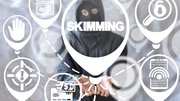News
Competition for ATM service heats up
Some third-party ATM service providers fear that a series of recent product and policy changes by Diebold and NCR may make it difficult for 'small guys' to fairly compete with the manufacturers.
October 26, 2004
For many third-party ATM service providers, their ability to know and respond to their customers' needs is a key selling point.
They contend that the "big guys" -- vendors like Diebold and NCR -- can't provide the same level of customer service, especially to smaller accounts like credit unions and community banks.
"I don't think the big vendors serve small town America as well as we can," said Tony Green, a purchasing agent for Federal Protection, a Missouri-based security company that has been servicing ATMs and other bank equipment since 1991.
|
"I think they see Triple DES as an opportunity to take over some of the service business," Green said.
Both vendors acknowledge that they have made changes, but contend they were necessary to protect their brand integrity as well as their customers' best interests.
The problem with parts
Parts supply is an area of growing contention between service providers and NCR. The manufacturer reportedly is making it more difficult for service providers and refurb shops to purchase its parts. Green said he stopped purchasing parts from NCR when he was notified late last year that Federal Protection would no longer receive its usual discount.
Instead, Green said, he plans to purchase parts from companies that source (create and market) parts that can be substituted for manufacturers' parts.
The NCR discount allowed Federal Protection to include a "marginal" mark-up for replacement parts, Green said. "If the customer can purchase parts for the same price I can, I can't do that anymore because I don't want my customer to have hard feelings."
ATM Exchange, an Ohio-based refurb shop which has an agreement with NCR that stipulates the parts it purchases can only be used to refurbish machines, had its discounts eliminated in late 2003, said Dave Parlin, the company's president. In addition, Parlin said, NCR hiked its fee for overnight delivery of parts from less than $100 to $1,000.
Lead times also became longer, he said. "It now takes up to 120 days to get parts I could have gotten in a week before."
Andy Orent, vice president of NCR's Financial Solutions division for the Americas, said the manufacturer does offer parts discounts for participants in its partnership service program and "we are confident our partners programs are competitive with the market practices."
Parlin believes that NCR may be trying to emulate Diebold, which, he said, "has always been more protective about its suppliers and the flow of parts. Instead of making an abrupt change in policy, I think (NCR) is trying to do it gradually."
Acknowledging that NCR programs may have been more liberal than those of other vendors in the past, Orent said, "We're constantly refining our partnership program to make it more competitive with those of our mainline competitors."
Ultimately, Orent said, NCR must protect its brand and its customers. "If someone gets a part not authorized by NCR, in the end it does reflect back on us. We recognize there are third parties out there, and we can't tell them where to purchase their parts. They have the right to buy them from us; if they choose not to do so, that's their choice."
An NCR VAR (value added reseller) based in the Northeast, who preferred to remain anonymous, said that both NCR and Diebold are offering generous trade-in allowances to financial institutions for old machines being replaced as part of Triple DES compliance programs.
"They want to take those machines off the market so we can't use them for parts," he said. "They're trying to keep the third parties out of the service business. They know that ATM sales are something they're only going to get once every five years. Service revenue reoccurs year after year."
Green said that NCR is requiring its partners to provide detailed customer information in order to receive Triple DES upgrade kits, which he believes may offer a way for them to obtain prospects for service contracts.
"Their service area has been lacking over the past few years, and they haven't kept up with where a lot of their customers are," Green said. "I don't take offense at them for using this as a way to get that information. If we're doing what we should be doing, it shouldn't affect our business; our customers will want to stay with us."
Obtaining customer information is necessary for compliance with Visa, ANSI and ISO requirements that mandate that vendors can locate EPPs (encrypting PIN pads) after they have been shipped, Orent said. "NCR must provide the EPP serial number information to the purchaser, but it is the purchaser's responsibility to record the actual location."
Channel churn
Green welcomes some of the changes that NCR began instituting in 2003 as part of a realignment of its VAR (value added reseller) program. "We've heard that they've taken some people out of the game who weren't following the rules. That makes it easier on those of us who are following them," he said.
"Unfortunately, some partners have not followed the partnership contracts they have signed, which are put into place to provide better service to our customers and protect our intellectual properties," Orent said. "We will continue to enforce our partnership programs to ensure that NCR solutions are delivered to the marketplace with the customer and the industry in mind."
Some changes were made not due to rules violations but in an effort to optimize NCR's distribution channel, Orent said.
"We had too many partners in some territories, while in other territories we did not have enough, or none at all. Additionally, many did not make the necessary investment required to become an authorized provider of NCR solutions," he said. "We not only needed to ensure market coverage, but also quality in all aspects of the relationship. Our partnership agreements are designed to provide better sales, support and services to our customers."
In early 2003, NCR also introduced more territory managers, whose role is to increase sales in designated territories, both through work with VARs and direct sales. Because managers must meet sales quotas of their own, there is a conflict of interest, said another NCR VAR who preferred to remain anonymous.
"Some (territory managers) are intent on facilitating their resellers selling a lot of product. Others have made a lot of personal interactions and contacts in their territories, and they're using those to make direct sales -- sometimes at the expense of their resellers," he said.
The VAR said he is "not real clear on what the parameters are" defining territory managers' relationships with resellers and with financial institutions. He added, "The program is new, and NCR is still managing through the process."
The software situation
As noted by ATM Exchange's Parlin, Diebold has earned a reputation for keeping tighter controls over sales of its equipment. Unlike NCR, it does not support a traditional reseller program.
Several service providers expressed concerns with recent moves made by Diebold, including restrictions on use of its software.
Woody Alderman, president of Georgia-based ATM refurbisher Atlanta Computer Group (ACG), said customers who order Triple DES upgrades can only obtain software directly from Diebold.
"We've been preloading software when we upgrade ATMs for years," Alderman said. "But now the customer has to coordinate with a Diebold technician to load the software in the field. Problem is, some of those techs don't have a lot of experience loading software; they've mostly been involved with maintaining machines that are already up and running."
The customer does not receive a back-up copy of the software. Though Alderman said he understands that Diebold wants to protect its intellectual property, he believes customers should be able to get a copy of the software so they have the choice of using a third-party provider for future service of the machine.
"If you buy software for your PC, you get a copy so that you can reload it if the disc drive crashes," he said. "Without a copy, you're looking at paying a Diebold tech for a minimum two-hour service call to come out and reload that software."
According to Diebold spokesperson Tiffini Bloniarz, "Diebold's primary concern is for its direct customers. We are helping our customers to protect their investment by directly providing Triple DES upgrade kits. We will continue to review requests from alternative
suppliers, but as the manufacturer of the ATMs, we feel it's in our customers' best interest for Diebold to evaluate their situation."
An NCR VAR based in the Mideast, who also services some Diebold machines and preferred to remain anonymous, said Diebold has added password protection to its new Agilis software that in some cases will make it difficult to access screens needed to service ATMs.
"The only choice a financial institution will have is to go to Diebold to service its machines," he said.
Bloniarz said Diebold has built additional levels of security into some aspects of its Agilis terminal software applications, including maintenance and diagnostics, because of increasing pressures to ensure that ATM data is secure.
"This is not a change to policy as we have always put security first, but an ongoing
effort to support technology changes," she said. "Relative to serviceability, we password protect our operations but continue to provide standard terminal information, such as terminal status, version identification, configuration and device self test data to anyone servicing Diebold Opteva terminals."
Green, of Federal Protection, said some of the changes may be hard on financial institutions that use third-party service providers and don't want to switch.
"Customers don't like to be forced into a corner," Green said. "That's like buying your car from a Chevrolet dealer and having him tell you that you can't go anywhere else for service. Most customers at least want the option of taking the car somewhere else for an oil change."
Included In This Story
Diebold Nixdorf
As a global technology leader and innovative services provider, Diebold Nixdorf delivers the solutions that enable financial institutions to improve efficiencies, protect assets and better serve consumers.
 ChatGPT
ChatGPT Grok
Grok Perplexity
Perplexity Claude
Claude















